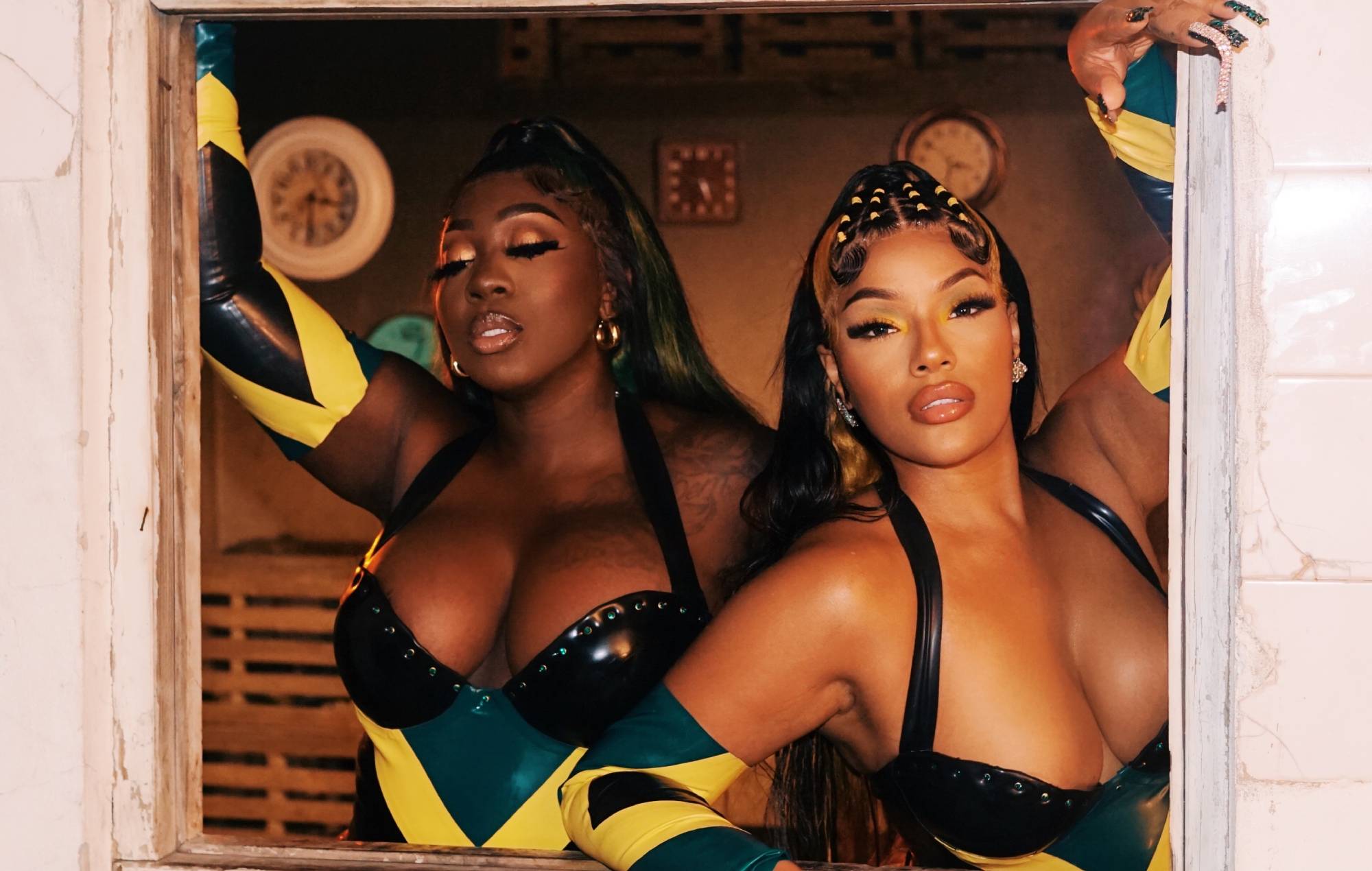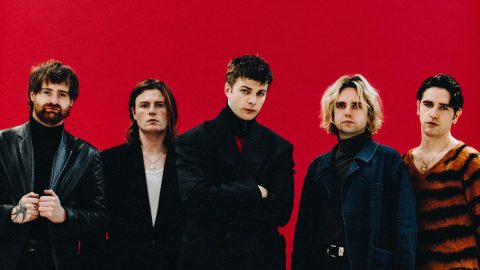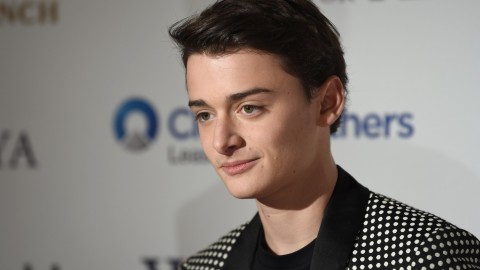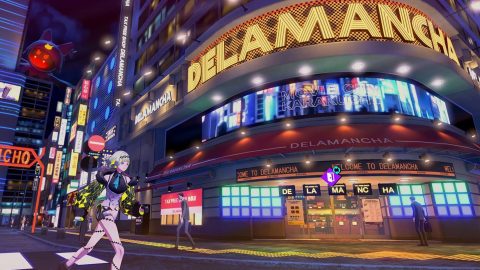
Egyptian Blue now know that being made to bide your time can be a blessing in disguise. In late 2019, few emerging bands had built up quite as much momentum as the Brighton four-piece. Blazing, ear-splitting shows at testing venues like London’s The Shacklewell Arms and a tour supporting The Murder Capital brought to life the feverish, angular tension contained in their debut EP, ‘Collateral Damage’, and plans were moving forward at pace. And then, 2020 happened.
“It was quite distressing, because we were meant to go to Barcelona twice in the month when everything locked down,” recalls the post-punk band’s singer and guitarist, Andy Buss. “And then after that, we were going to have a 6 Music session and record our debut album.”
A period of existential concern for the band’s future set in. Slowly, though, as those elastic months played out, they grew to realise that the enforced downtime was allowing space for their music to mature and flower in a way that they hadn’t anticipated. The resulting debut album, ‘A Living Commodity’, due on October 27, presents a version of Egyptian Blue that is more finely developed and sophisticated than ever before.
In fact, it may just surprise some of the band’s diehard fans. “This is what I’ve been telling a lot of people – they’re gonna be shocked by it,” says Buss. “I feel like it is way more in touch emotionally than anything we’ve done before and way more complex and measured.”
“The pandemic allowed us the time to lick our wounds,” adds guitarist Leith Ambrose. “We’ve come back with a much stronger album because of it: more fully shaped and finessed. I think it will resonate with people.”
Look no further than lead single ‘Geisha’, which is ridden with taut anxiety, and yet oozes elegance with its measured vocals, patient pacing and low-rumbling bass. “Truth will eat you, incomplete you, obsolete you / If love is just the bitter end, let’s just pretend,” sings Buss, his voice seeming to echo in a chamber of his own darkness.

Throughout the album, Egyptian Blue’s lyrics are consistently compelling, if at times challenging to pin down. What is clear is that Buss was going through some kind of personal turmoil during the writing process. “They are based highly on the emotional landscape that I was in at that current point,” he says obliquely. “I was trying to escape the reality that I was in.”
On ‘Skin’, Buss sings “I don’t want to wear this skin anymore”, showing a level of vulnerability that isn’t hugely common in the post-punk realm. “There’s catharsis in dialling into some kind of vice, you know?” he says today, insisting that this naked emotion won’t be challenging to tap into when Egyptian Blue perform the album live. “There’s no shame in being vulnerable,” he adds. “I’m not afraid of it, certainly. I like it.”
When Egyptian Blue were finally able to hit the stage again in 2021, they did so with a bang, playing a string of prestigious European dates with their idols Foals. Both Buss and Ambrose light up at the mention of it. “Once you’re up there, it doesn’t even feel real,” Buss says. “You know that if you can play in front of a 7,000 sellout crowd in Amsterdam, then after that everything is fine.”
By this point, the Egyptian Blue sound had already gone through a growth spurt, but this level of exposure added yet more fuel to the creative fire. “It lights you up inside,” says Ambrose. “It makes you want to tour so that you can be in a broken down van in Leeds or in some terrible environment in Berlin or something like that. It makes you want to push yourself.”
When Buss and Ambrose met as 11-year-olds starting secondary school in Ipswich, all of this would have been hard to imagine. Here, they quickly clocked one another as like-minded souls who responded deeply to music. Buss’ world was rocked by early Arctic Monkeys albums and the memory of a trip to see R.E.M. with his parents when he was seven. Ambrose, meanwhile, was obsessed with the pioneering psychedelic rock of Jimi Hendrix.
They dabbled with creating music together at school, but it wasn’t until relocating to Brighton for university in 2014 that it became a more serious endeavour. “Music was the main reason for that move, studies second,” quips Buss. There, they met bassist Luke Phelps and drummer Isaac Ide, completing the band’s four-member lineup.
Though Brighton is hardly starved of talented indie bands including Lambrini Girls and Lime Garden, Egyptian Blue say they don’t slot neatly into the local scene. “We’re quite insular,” Ambrose explains. “And we’re very focused on what we want to achieve, which means we go out less and spend less time with other people. We haven’t played that much in Brighton, really.”
They’re likely to spend even less time there now that Ambrose is based in London and Buss is also considering a move to the capital. Still, Brighton will always be integral to the band’s sound because it led them to producer Theo Verney (English Teacher, FUR). He didn’t just produce their early work and ‘A Living Commodity’, but is also hailed by Ambrose as the band’s “full-time therapist”.
From the outside, it seems as if Egyptian Blue have reached a place where the maturity and self-reflection in their music is such that they are getting pretty good at being their own therapists. Certainly, they have been writing more furiously than ever in recent months, and with a major headline show at London’s iconic 100 Club on November 9, Egyptian Blue are done waiting – this is their time.
‘A Living Commodity’ is out October 27 via Yala!
The post Egyptian Blue are done waiting – their time is finally here appeared first on NME.








